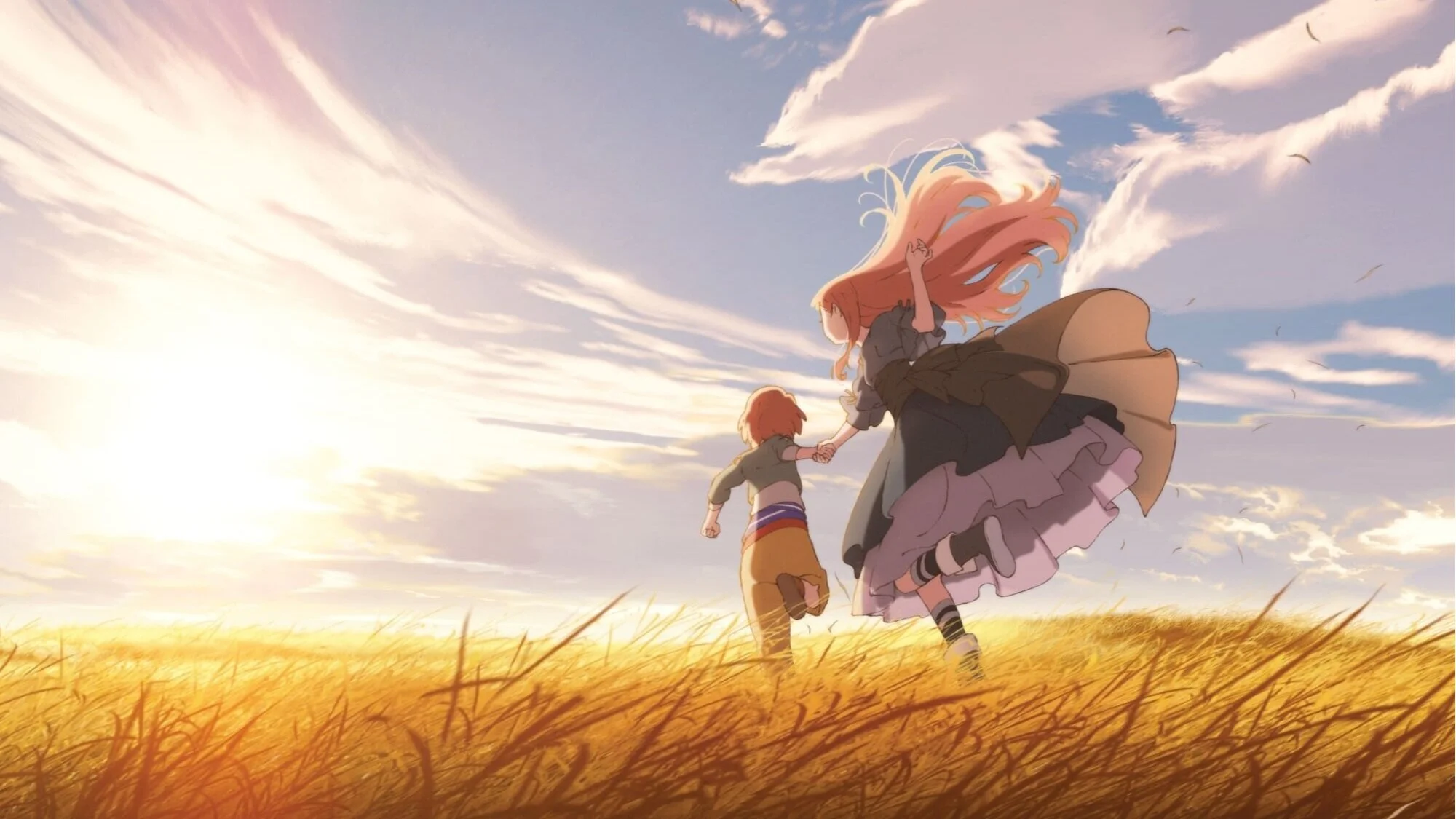Maquia
An animated film of adult appeal centred on the bond between mother and child.
Japan's standing as a prime source of outstanding animated films shows no sign of declining. The latest such piece to reach us is Maquia: When the Promised Flower Blooms, which is self-evidently a highlight in the career of Okada Mari. She has long been a noted figure in the field of anime both in cinema and television but her work has been as a writer. Now she directs a feature from a screenplay of her own for the first time and the result, although imperfect, is nevertheless a striking work.
The fantasy world in which this film is set features a heroine who, along with other members of her clan, works at a loom but is aware of a special destiny since this clan has the secret of eternal life and will never grow old. However, that fact leads to an attack from a kingdom of mortals in quest of this hidden knowledge and both our heroine, Maquia, and her friend, Leilia, find themselves transported to the land of the Mezarte. Its prince takes Leilia as his wife, but the central focus is on Maquia and on what happens when she comes across a baby without a future. She takes this foundling boy, gives him the name of Erial and proceeds to bring him up as though he were her own child.
Not so long ago another Japanese anime, Your Name, had a love story at its centre and so does this one. But here it is the love between somebody who assumes the role of a mother and the child for whom she cares. Ultimately, Leilia's tale will also lead in this direction, but it is Maquia and Erial who are the crucial figures. As Erial grows towards manhood, their relationship reflects some of the familiar tensions that frequently arise between a mother and an adolescent child, but there's an extra poignancy here in that Maquia, who has been warned against loving an ordinary human, realises that because Erial will age normally she is bound to outlive him and feel the loss.
Okada's film is not without action and spectacle but its unusual focus makes it an intimate work which gains from the way in which it encourages the audience to reflect in their own way on the emotional implications. Furthermore, if the character drawing is able but unexceptional, the background images show rare richness and imagination as they create a world far removed from the Japanese setting of most animated films from that country. The film's individuality is so pleasing that it looked as though it might turn out to be a masterpiece despite the rather wide range of characters that the viewer has to take on board. However, a drawn-out finale replete with flashbacks makes the running time of 114 minutes seem overlong and, even more seriously, the emotional restraint that has unexpectedly characterised the film to its great advantage gives way to a bout of sentimentality late on. Even so, much of this film works beautifully and it is supported by a very apt music score from Kawai Kenji.
MANSEL STIMPSON
Voices of Iwami Manaka, Irino Miyu, Kayano Ai, Kaji Yuuki, Sawashiro Miyuki, Hosoya Yoshimasa, Satou Rina, Hikasa Yoko, Kuno Misaki, Sugira Tomokazu, Sakurai Yuki, Kaji Yuki, Hikasa Yoko.
Dir Okada Mari, Pro Kikuchi Horohisa, Endo Naoko, Takenaka Nobuhiro and Kyotani Tomomi, Screenplay Okada Mari, based on the manga by Sato Mito, Ph Namiki Satoshi, Art Dir Higashiji Kazuki, Ed Takahashi Ayumi, Music Kawai Kenji, Chief Animation Dir Ishi Yuriko.
Bandai Visual/Cygames/Hakuhodo DY Music & Pictures/Lantis/P.A. Works-National Amusements.
114 mins. Japan. 2018. Rel: 27 June 2018. Cert. 15.


